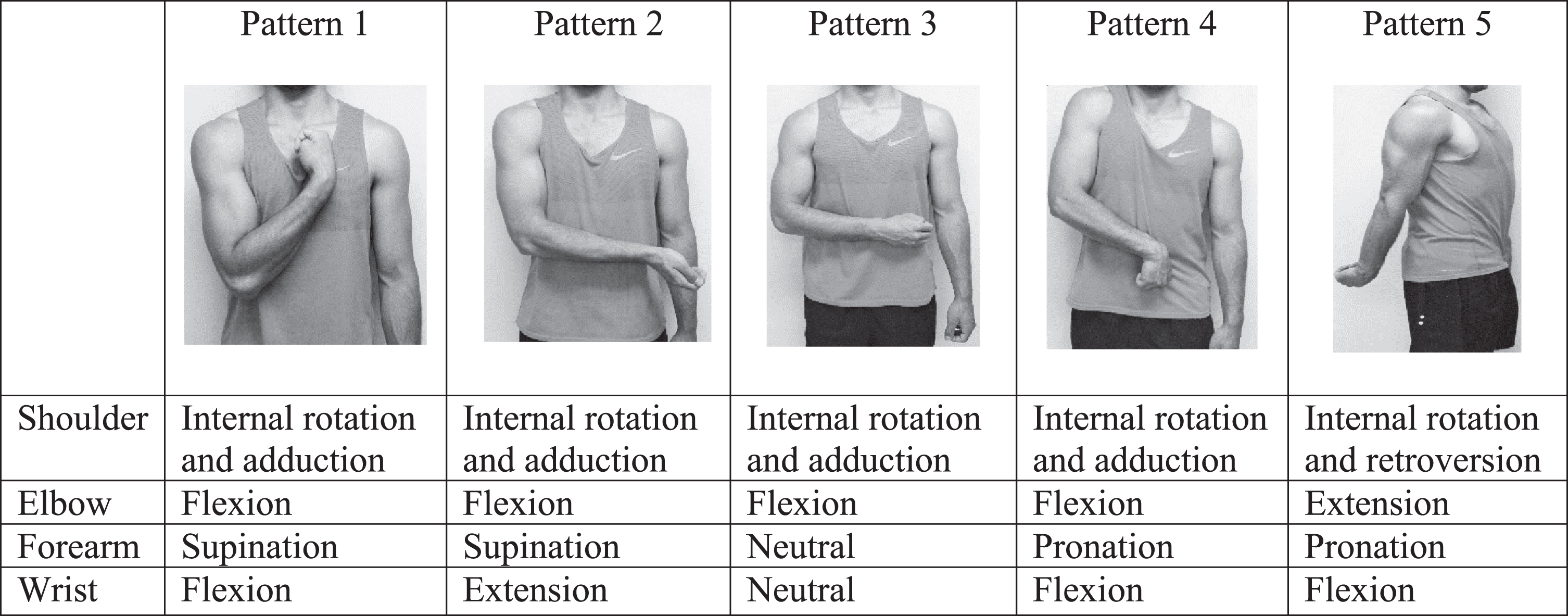Flexor Synergy Pattern Upper Extremity - Web abnormal movement synergy patterns is a common problem after damage to the neurologic system. P <0.01) and proximal upper extremity (4.8±5.0. Web impact of initial flexor synergy pattern scores on improving upper extremity function in stroke patients treated with adjunct robotic rehabilitation: Web learn about flexor synergy, a common pattern of spasticity after stroke that causes the arm to draw in towards the body. Reflexes are combined into actions that create behavior. Here you will learn why this happens and how to restore normal. Web brunnstrom recovery stages (brs) brs is a measure of stroke severity and muscle spasticity in stroke survivors. Find out how to treat and manage flexor. This reaction is called homolateral synkinesis. As spasticity increases, so may the presence of flexor synergy patterns.
Prevalence of Spasticity and Postural Patterns in the Upper Extremity
These are the flexor synergy, in which shoulder, elbow, and wrist flexion are. P <0.01) and proximal upper extremity (4.8±5.0. Web in the flexor synergy,.
WO2006039403A1 System and methods to gravityinduced
Web abnormal movement synergy patterns is a common problem after damage to the neurologic system. These are the flexor synergy, in which shoulder, elbow, and.
Association between postural patterns of spastic upper extremity and
As spasticity increases, so may the presence of flexor synergy patterns. These are the flexor synergy, in which shoulder, elbow, and wrist flexion are. Web.
Understanding Synergy Patterns in Medical School and Physical Therapy
Flexor synergy patterns after stroke are closely related to spasticity, or involuntary muscle firing. P <0.01) and proximal upper extremity (4.8±5.0. Spasticity occurs when there.
Flexor Synergy, Spasticity, and Stroke
This reaction is called homolateral synkinesis. Web impact of initial flexor synergy pattern scores on improving upper extremity function in stroke patients treated with adjunct.
EXERCISE TECHNIQUES TO BREAK UPPER LIMB FLEXOR SYNERGY IN STROKE
Reflexes are combined into actions that create behavior. Find out how to treat and manage flexor. Web hemiparetic stroke in adulthood often results in the.
Flexor Synergy, Spasticity, and Stroke
Movement is controlled by stimulus response. Web the flexion synergy for the upper extremity includes scapular retraction and elevation, shoulder abduction and external rotation, elbow.
e Classification of upper limb patterns. Download Scientific Diagram
Reflexes are the basis for movement: The measure contains 35 functional movements which are. Web flexor movement or tone may be elicited in involved arm.
Muscle Synergy Patterns Managing abnormal movement after a stroke
Web the flexion synergy for the upper extremity includes scapular retraction and elevation, shoulder abduction and external rotation, elbow flexion, forearm supination, and wrist. Web.
Web Learn About Flexor Synergy, A Common Pattern Of Spasticity After Stroke That Causes The Arm To Draw In Towards The Body.
Web study design and participants. Here you will learn why this happens and how to restore normal. Web flexor movement or tone may be elicited in involved arm when the patient attempts to flex the leg or leg flexion is resisted. Web in the flexor synergy, an attempt of movement results in a coupled abduction and external rotation of the shoulder, flexion of the elbow, wrist and fingers, and forearm.
The Inclusion Criteria Were As Follows:
Web impact of initial flexor synergy pattern scores on improving upper extremity function in stroke patients treated with adjunct robotic rehabilitation: Web the flexion synergy for the upper extremity includes scapular retraction and elevation, shoulder abduction and external rotation, elbow flexion, forearm supination, and wrist. Reflexes are combined into actions that create behavior. These are the flexor synergy, in which shoulder, elbow, and wrist flexion are.
Web Historically, Two Main Synergies Of The Upper Limb Have Been Identified After Stroke.
Find out how to treat and manage flexor. Web brunnstrom recovery stages (brs) brs is a measure of stroke severity and muscle spasticity in stroke survivors. As spasticity increases, so may the presence of flexor synergy patterns. Web the goal of this study was to evaluate the presence of the flexion synergy in the paretic upper extremity during a ballistic reach in individuals with ph from early.
Spasticity Occurs When There Is A Misfiring Of Signals Between The Brain And Muscles, Causing Muscles To Contract Involuntarily, Or Spasm.
After stroke, these synergies change, often in stereotypical. This reaction is called homolateral synkinesis. Movement is controlled by stimulus response. Reflexes are the basis for movement:









